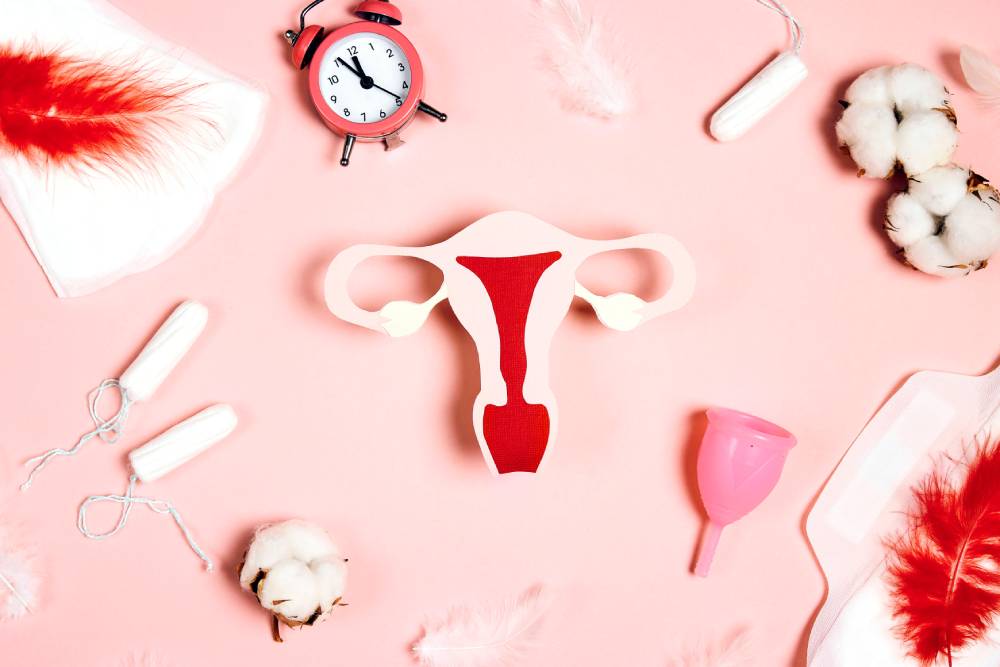How common is heavy menstrual bleeding?

Heavy menstrual bleeding is very common. About one third of women seek treatment for it. Heavy menstrual bleeding is not normal. It can disrupt your life and may be a sign of a more serious health problem. When is menstrual bleeding considered “heavy”?
Any of the following is considered to be heavy menstrual bleeding:
- Bleeding that lasts more than 7 days.
- Bleeding that soaks through one or more tampons or pads every hour for several hours in a row.
- Needing to wear more than one pad at a time to control menstrual flow.
- Needing to change pads or tampons during the night.
- Menstrual flow with blood clots that are as big as a quarter or larger.
How can heavy menstrual bleeding affect my health?
Heavy menstrual bleeding may be a sign of an underlying health problem, such as fibroids, that needs treatment. Blood loss from heavy periods also can lead to a condition called iron-deficiency anemia. Severe anemia can cause shortness of breath and increase the risk of heart problems.
What causes heavy menstrual bleeding?
Many things can cause heavy menstrual bleeding.
Some of the causes include the following:
- Fibroids and polyps
- Adenomyosis
- Irregular ovulation : If you do not ovulate regularly, areas of the endometrium (the lining of the uterus) can become too thick. This condition is common during puberty and perimeno pause. It also can occur in women with certain medical conditions, such as polycystic ovary syndrome and hypothyroidism.
- Bleeding disorders: When the blood does not clot properly, it can cause heavy bleeding.
- Medications: Blood thinners and aspirin can cause heavy menstrual bleeding. The copper intrauterine device (IUD) can cause heavier menstrual bleeding, especially during the first year of use.
- Cancer: Heavy menstrual bleeding can be an early sign of endometrial cancer. Most cases of endometrial cancer are diagnosed in women in their mid 60s who are past menopause. It is often diagnosed at an early stage when treatment is the most effective.
- Other causes: Endometriosis can cause heavy menstrual bleeding. Other causes include those related to pregnancy, such as ectopic pregnancy and miscarriage. Pelvic inflammatory disease can also cause heavy menstrual bleeding. Sometimes, the cause is not known.

Which procedures can be used to treat heavy bleeding? If medication does not reduce your bleeding, a surgical procedure may be needed:
- Uterine artery embolization (UAE) is used to treat fibroids. In the UAE, the blood vessels to the uterus are blocked, which stops the blood flow that allows fibroids to grow.
- Endometrial ablation destroys the lining of the uterus. It stops or reduces bleeding. Pregnancy is not likely after ablation, but it can happen. If it does, the risk of serious complications is greatly increased. You will need to use a birth control method until after menopause following endometrial ablation. Sterilization (permanent birth control) may be a good option to prevent pregnancy for women having ablation. Endometrial ablation should be considered only after medication or other therapies have not worked.
- Myomectomy is surgery to remove fibroids without removing the uterus. Hysteroscopy can be used to remove fibroids or stop bleeding caused by fibroids in some cases.
- Hysterectomy is surgical removal of the uterus. Hysterectomy is used to treat fibroids and adenomyosis when other types of treatment have failed or are not an option. It is also used to treat endometrial cancer. After the uterus is removed, a woman can no longer get pregnant and will no longer have periods.
If you are experiencing heavy menstrual bleeding, contact Atlanta Fibroid Clinic to schedule an evaluation with Dr. Patel.
